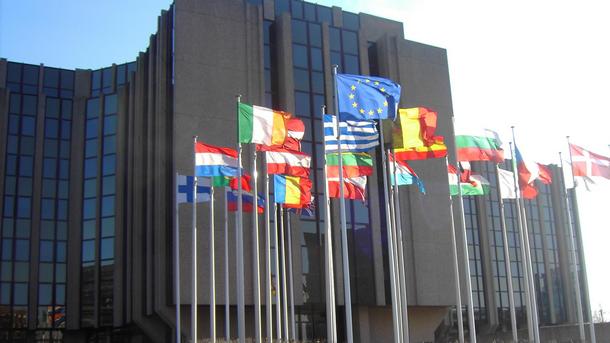The European Parliament cuts more than 90% of the scope of ESG reporting after pressure from the US and business
Climate-transition plan requirements and EU-wide civil liability are removed entirely
The changes aim at boosting competitiveness, but critics warn of risks to climate goals
The European Parliament has voted for a drastic rollback of the bloc’s ESG rules following strong pressure from US business associations and state attorneys general.
The decision means that more than 90% of the companies initially covered by the requirements for non-financial reporting on environmental, social, and governance factors will no longer need to comply with them. Other parts of the regulations that had become contentious for the US have been removed entirely. After Thursday’s vote, the legislation moves on to approval by the EU member states.
The EU has responded to concerns raised by the American fossil-fuel industry and the US Chamber of Commerce, said Pascal Canfin, a senior MEP from the centrist Renew group. “They won,” he said.
As a long-standing stronghold of ESG, Europe’s decision to pare back regulations once considered the global standard represents a surprising retreat. In the US, ESG has been denounced by the Trump administration as “woke” and anti-American. In Europe, however, concerns focused mainly on compliance costs rather than ideology.
“We have put competitiveness back on the agenda,” said Jörgen Warborn, a Swedish MEP from the European People’s Party who led the negotiations. According to him, the outcome shows “that Europe can be both sustainable and competitive.” And while the European Parliament acts in Europe’s interest, it must listen to “all stakeholders,” he added.
“When I meet with our partners around the world, they feel we have been pushing our agenda too aggressively, which complicates our negotiations with them, including on trade,” said Warborn, who is also a member of the Parliament’s international trade committee. “These trade agreements are extremely important, especially as it becomes increasingly difficult to do business with the US.”
What is changing the regulations
The changes agreed by MEPs mean that 92% of the companies that were supposed to fall under the Corporate Sustainability Reporting Directive (CSRD) will now be out of scope, according to Julia Otten, senior expert at the legal advocacy group Frank Bold.
MEPs also voted to abolish the requirement for companies to prepare climate-transition plans under the Corporate Sustainability Due Diligence Directive (CSDDD). The proposal to introduce EU-wide civil liability was also scrapped.
EU lawmakers did not address the issue of extraterritoriality, under which countries outside the EU must comply with the bloc’s ESG rules if they want access to its market. But with other parts of the legislation weakened or removed, many of the elements that worried the US have been effectively softened, MEPs said.
Marjorie Chorlins, senior vice president for Europe at the US Chamber of Commerce, said the changes to the CSDDD “represent meaningful progress toward a more balanced and effective framework,” according to an email sent Thursday evening.
“Nevertheless, we remain concerned about the extraterritorial reach of the directive,” she added.
Next steps and the risk of excessive deregulation
Valdis Dombrovskis, EU Commissioner for Economy and Productivity, said in a Bloomberg Radio interview last week that the EU is listening to such concerns. Meanwhile, Teresa Ribera, Executive Vice President of the European Commission, warned against excessive deregulation.
Negotiations with member states to finalize the changes to the CSRD and CSDDD are expected to begin almost immediately. The Parliament’s vote is another step in the broader EU effort to simplify regulations in order to improve the bloc’s competitiveness. Critics, however, warn that the shift risks undermining the larger goal—achieving the climate and social targets that are core to EU values.
The legislation had been “the best tool for deterring companies from relocating to countries that do not respect social, environmental, or human rights,” said Terry Reintke, co-chair of the Greens/EFA group. “The right and far-right have destroyed our ability to regulate economic actors and our main tool for encouraging companies to maintain and create jobs in the EU.”
Details
The Parliament agreed to limit CSRD requirements to companies with more than 1,750 employees and annual revenue above €450 million. The limit also applies to disclosure requirements under the EU Taxonomy Regulation.
The CSDDD will apply only to companies with more than 5,000 employees and annual revenues of €1.5 billion. Violations can be pursued only at national level and may result in compensation and fines according to guidelines from the Commission and member states.
The requirement for climate-transition plans has been removed. EU-wide civil liability no longer appears in the text.






